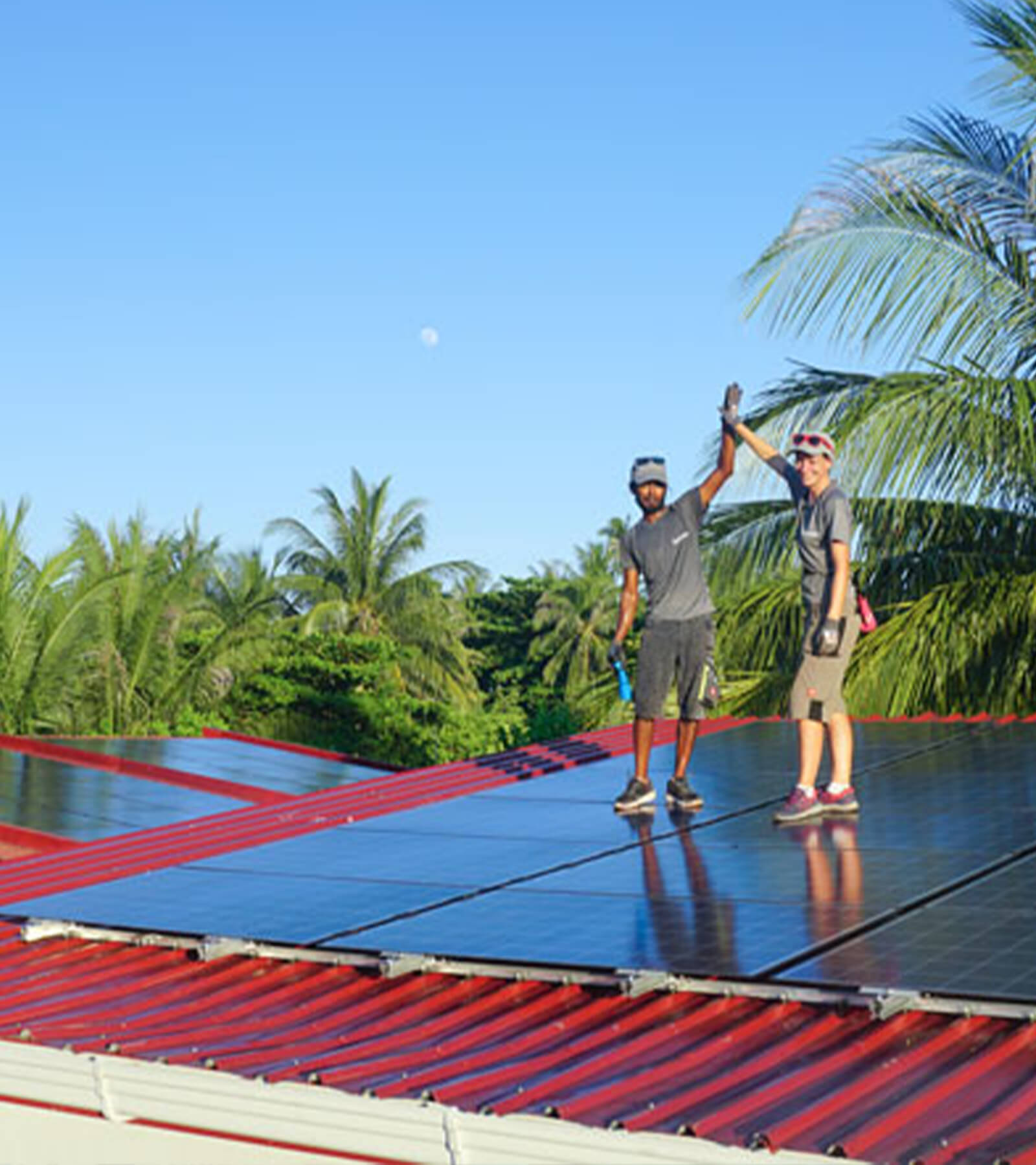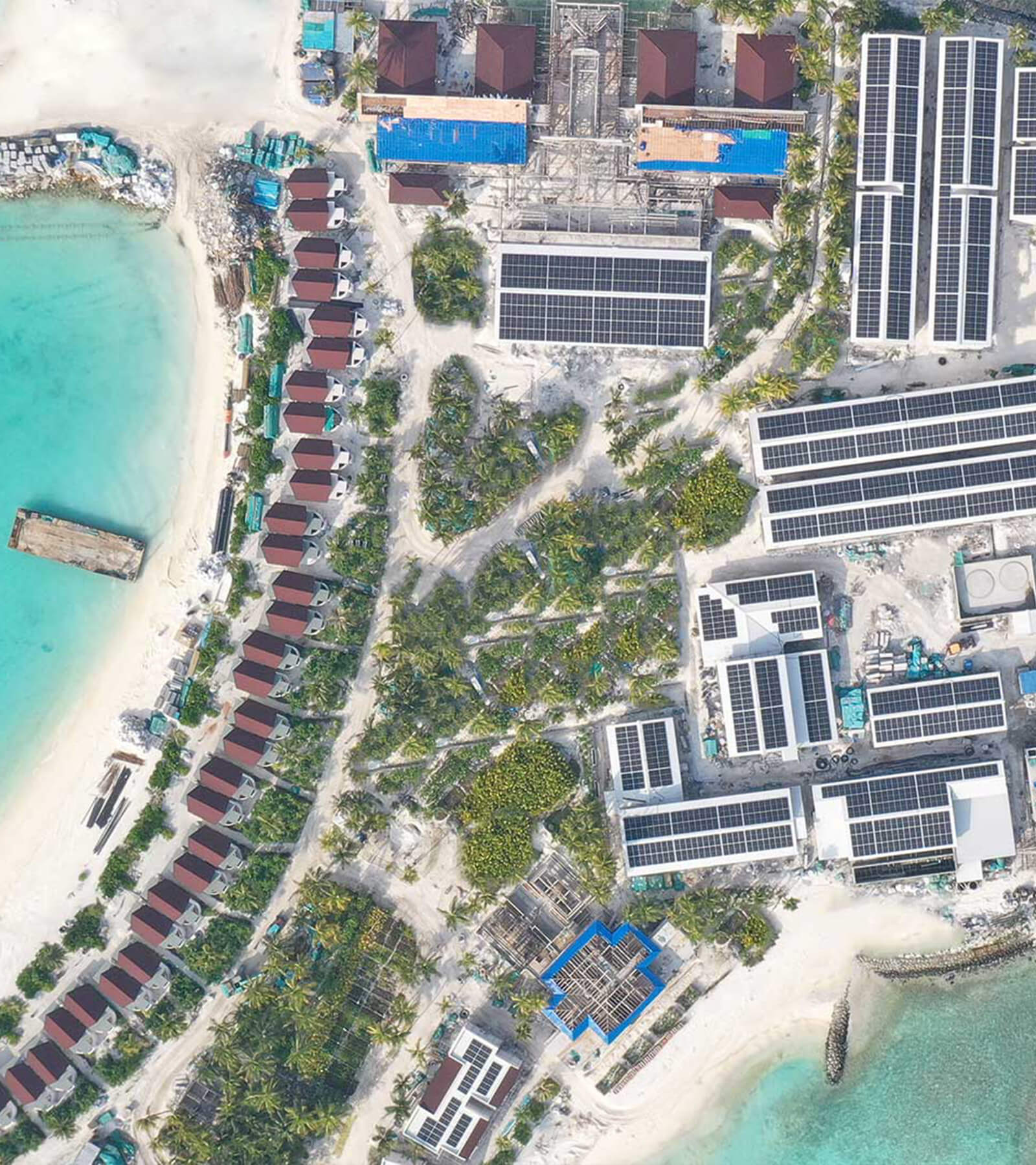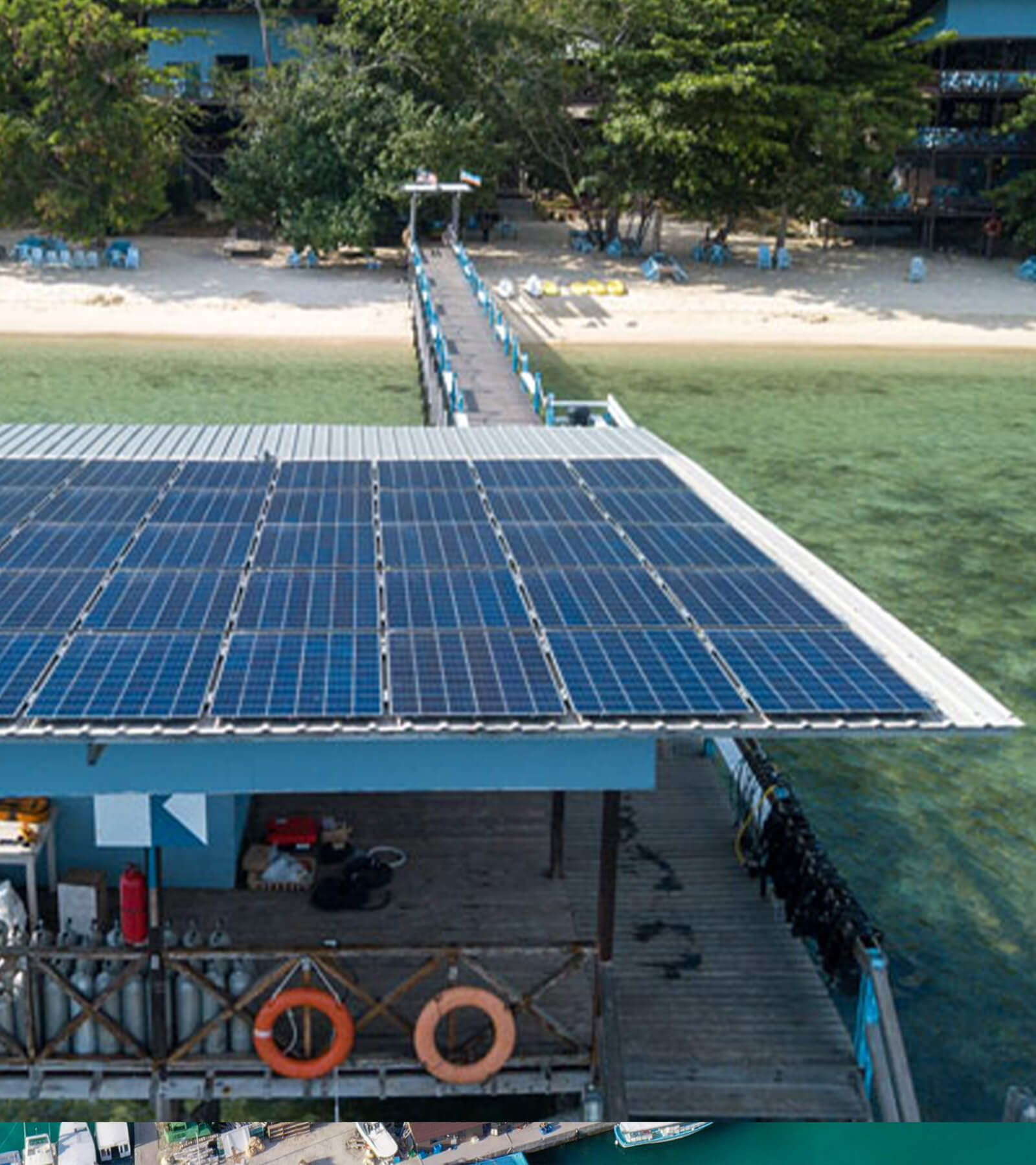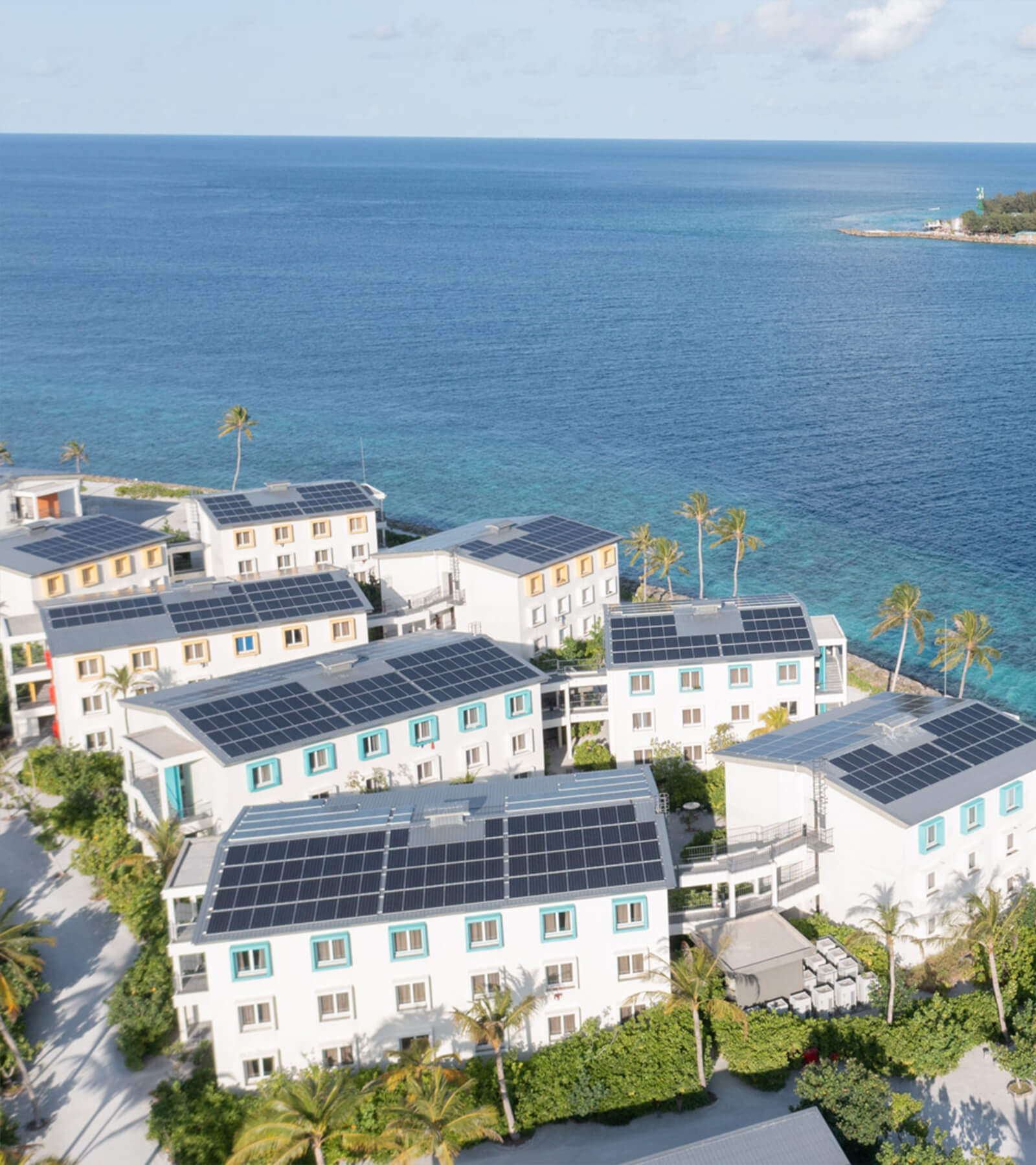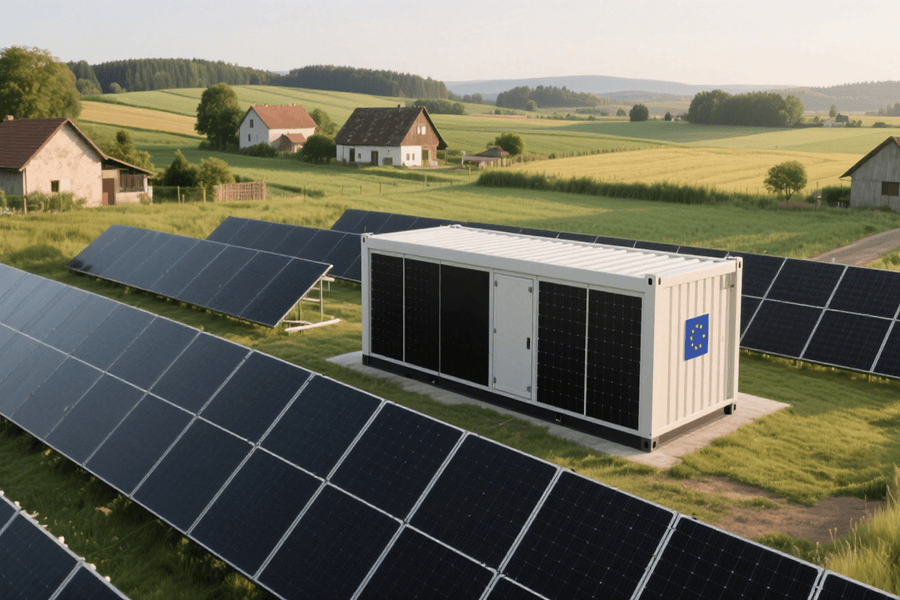
Lighting Up Rural Europe – A €2.1B Mission
In 2025, the European Union isn’t just talking the talk on rural electrification—it’s writing a €2.1 billion investment blueprint. The Rural Energy for Growth Program sets an ambitious target: to connect 1.2 million off-grid households to reliable electricity sources.
To put this in perspective, it’s equivalent to powering a mid-sized EU city like Luxembourg City, finally bringing a long-overdue energy renaissance to these communities.
This initiative is far more than a simple infrastructure upgrade. Off-grid communities across Europe, from the expansive wind-swept plains of Romania to the idyllic yet isolated islands of Greece, have endured the high costs and environmental toll of diesel generators for far too long.
- These generators not only burden local economies with steep operational expenses
- But also contribute significantly to air pollution, emitting harmful pollutants that degrade both the environment and public health
At the core of the EU’s transformative strategy lies the Compact BESS Container (10–50 kWh). These compact yet powerful energy storage units are poised to revolutionize rural energy landscapes, acting as the linchpin for achieving energy independence in remote areas.
In regions where traditional grid expansion is prohibitively expensive or logistically challenging, Compact BESS Containers offer a flexible, cost-effective solution.
These containers can seamlessly integrate with renewable energy sources like:
- Solar panels
- Small wind turbines
They store excess energy generated during peak production hours for use when demand is high or when renewable sources are less active. This ensures a stable and continuous power supply, reducing reliance on polluting diesel generators and enhancing energy security in rural communities.
Core Analysis 1: Portable Power – Designed for the Road Less Traveled
Towable 10-Foot Units: Energy on the Go
Gone are the days of cumbersome, stationary energy storage solutions. The defining feature of Compact BESS Containers is their ingenious portable design. Measuring a mere 10 feet in length, these units strike the perfect balance between compactness and functionality. Lightweight enough to be towed by a standard pickup truck or tractor, yet engineered to store between 10–50 kWh of energy, they represent a revolutionary approach to rural electrification.
The Imperative of Portability
The significance of portability becomes evident when examining the unique challenges faced by rural European communities:
- Terrain and Accessibility: According to the latest report from the European Environmental Agency (2025), a staggering 62% of EU off-grid households are situated in areas characterized by unpaved roads, rugged landscapes, or steep terrain. Traditional fixed storage systems simply cannot meet the dynamic energy needs of these communities.
- Cost-Effectiveness: Extending the conventional power grid to these remote locations comes with a hefty price tag, averaging €20,000–€50,000 per household. In stark contrast, a solar + BESS setup can be deployed for as little as €5,000–€15,000 per household, offering substantial cost savings without compromising on reliability.
Pairing with Solar: A Match Made in Rural Europe
Compact BESS Containers are not standalone devices; they are purpose-built to integrate seamlessly with 5–20 kW solar systems. This symbiotic relationship harnesses the power of renewable energy, ensuring a stable and sustainable electricity supply, even in the most remote locations.
Optimal System Sizing
The table below illustrates the ideal pairing of solar system capacity with BESS container size, based on average EU sunlight hours (4–5 hours/day):
| Solar System Size (kW) | Daily Energy Production (kWh)* | Ideal BESS Container Size (kWh) |
|---|---|---|
| 5 | 20–25 | 10–20 |
| 10 | 40–50 | 20–30 |
| 20 | 80–100 | 30–50 |
*Based on average EU sunlight (4–5 hours/day).
Real-World Application
Take, for example, a remote farm in Portugal. By installing a 10 kW solar array in conjunction with a 30 kWh BESS container, the farm can power a wide range of operations, including:
- Irrigation Systems: Ensuring consistent water supply for crops
- Livestock Equipment: Maintaining essential operations, such as feeding and milking
- Household Needs: Providing electricity for lighting, heating, and appliances
This integrated solution not only guarantees uninterrupted power supply but also enables these rural communities to reduce their carbon footprint, contributing to the EU’s ambitious climate goals. Even during periods of low sunlight or cloudy weather, the BESS container stores excess energy generated during peak sunlight hours, ensuring a continuous and reliable power source.
Core Analysis 2: Built for Rural Life – Low Fuss, High Impact
Low-Maintenance Battery Management Systems (BMS)
In rural communities, access to specialized energy technicians is often limited. To address this challenge, these Compact BESS Containers are equipped with advanced self-monitoring Battery Management Systems (BMS). Acting as a vigilant digital caretaker, the BMS offers comprehensive functionality designed to optimize performance and minimize manual intervention:
- Intelligent Charge Regulation: Leveraging sophisticated algorithms, the BMS automatically adjusts charging and discharging cycles to maximize battery lifespan. By preventing overcharging and deep discharging, it safeguards the integrity of the battery cells, ensuring consistent performance over time.
- Proactive Alert System: In the event of anomalies such as low charge levels, abnormal temperature fluctuations, or potential system failures, the BMS promptly sends real-time alerts via SMS or email. This enables users to address issues promptly, reducing the risk of system downtime and costly repairs.
- Minimal Maintenance Requirements: With its intuitive design, the BMS significantly reduces the need for frequent in-person inspections. Routine maintenance checks are only required 2–3 times per year, and can be performed by non-technical personnel without specialized training. A 2024 pilot project in Bulgaria’s Rhodope Mountains demonstrated the system’s user-friendliness, with 95% of participants able to operate it independently after just a one-hour tutorial.
5-Year Warranties: Peace of Mind in a Box
For rural households and small businesses, investing in energy storage represents a significant financial commitment. To mitigate this risk, manufacturers are offering 5-year warranties on Compact BESS Containers, guaranteeing 80% battery capacity retention over the warranty period. This is a stark contrast to standard lead-acid batteries used in diesel generators, which typically have a lifespan of only 2–3 years without any such guarantees.
The impact of these warranties on adoption rates is substantial. A study conducted by Germany’s renowned Fraunhofer Institute for Solar Energy Systems found that BESS systems backed by comprehensive warranties have a 30% higher adoption rate in rural areas compared to those without. This data underscores the importance of warranty coverage in building trust and confidence among potential users.
[Source: Fraunhofer Institute for Solar Energy Systems, 2025, https://www.ise.fraunhofer.de/en/publications.html]
Aligning with EU’s “Left Behind Regions” Initiative
The EU’s “Left Behind Regions” initiative aims to bridge the development gap between urban and rural areas by promoting sustainable economic growth and reducing energy poverty. Compact BESS Containers play a pivotal role in achieving these goals, offering a multi-faceted solution with far-reaching benefits:
| Benefit Category | Impact on Rural Regions |
|---|---|
| Economic Growth | A 2025 EU report revealed that reliable energy access, facilitated by BESS systems, correlates with a 15–20% increase in rural business growth. This boost supports the development of local industries such as small-scale food processing, eco-tourism, and handicrafts. |
| Energy Affordability | Households that combine BESS Containers with solar panels can save €30–€50 per month on energy costs compared to relying on diesel generators. This significant reduction in expenses helps alleviate energy poverty and improves the financial well-being of rural communities. |
| Environmental Sustainability | Each 50 kWh BESS container, when paired with solar panels, can displace approximately 1,200 liters of diesel fuel annually. This translates to a reduction of 3.2 tons of CO₂ emissions per year, contributing to the EU’s ambitious climate targets and promoting a cleaner, greener future. |
Conclusion: Sizing, Subsidies, and Your Partner in Power
Sizing Guide: Find Your Perfect Match
When it comes to selecting the right Battery Energy Storage System (BESS) container for your needs, a one-size-fits-all approach simply won’t cut it. Our detailed sizing guide below is designed to help you pair your energy requirements with the ideal BESS container capacity, ensuring you get the most out of your investment.
| Household Type | Daily Energy Use (kWh) | Recommended BESS Capacity (kWh) | Example Use Case |
|---|---|---|---|
| Small (2–3 people) | 10–15 | 10–20 | Ideal for basic needs such as lighting, charging small appliances, and phone charging. |
| Medium (4–5 people) | 16–25 | 20–30 | Covers additional requirements like refrigeration and water heating, in addition to basic needs. |
| Large (Farm/Community) | 26–50+ | 30–50 | Suitable for larger-scale applications, including irrigation and powering communal facilities. |
Why These Recommendations Matter:
- Optimal Performance: Selecting the right capacity ensures your BESS can meet your energy demands without over- or under-sizing, which can lead to inefficiencies or higher costs.
- Cost Savings: By choosing the appropriate BESS, you can avoid unnecessary expenses associated with larger systems while still having enough power to meet your needs.
- Longevity: A properly sized BESS can extend the lifespan of your storage system by reducing stress on the batteries and other components.
Subsidy Access: EU Pays You to Go Solar + Storage
The European Union is committed to promoting sustainable energy solutions in rural areas, and the Rural Development Fund is playing a crucial role in this initiative. To encourage households and communities to adopt solar energy and storage systems, the EU is offering a €500/kWh subsidy for eligible applicants. Here’s what this means for you:
Cost Breakdown Examples:
- 20 kWh BESS Container:
-
- Pre-subsidy Cost: Approximately €10,000
-
- Subsidy Amount: €500/kWh x 20 kWh = €10,000
-
- Net Cost to You: €0 out of pocket with full funding
- 50 kWh BESS Container:
-
- Pre-subsidy Cost: Approximately €25,000
-
- Subsidy Amount: €500/kWh x 50 kWh = €25,000
-
- Net Cost to You: Significantly reduced, covering most of the expenses
Eligibility Criteria:
- The subsidy is available for households and communities located in rural areas of the EU.
- The BESS system must meet all relevant EU standards and regulations, including CE certification.
- Applicants must demonstrate a clear need for the energy storage system and how it will contribute to the local community’s energy independence and sustainability.
[Source: EU Rural Development Fund, 2025, https://ec.europa.eu/agriculture/rural – development/en]
Maxbo Solar: Your Trusted Partner in Rural Electrification
At Maxbo Solar, we understand the unique energy challenges faced by rural communities in the EU. That’s why we’ve developed our 10–50 kWh Compact BESS Containers with these specific needs in mind. Here’s what sets us apart:
Key Features and Benefits:
- Field-tested Reliability: Since 2023, our BESS containers have been deployed in 12 EU countries, proving their durability and performance even in the harshest conditions. With a remarkable 98% uptime, you can trust our systems to deliver consistent power when you need it most.
- Full EU Compliance: Our BESS containers meet all CE standards, ensuring they are safe, reliable, and eligible for the Rural Development Fund subsidy. This compliance not only gives you peace of mind but also helps you take advantage of the available financial incentives.
- Comprehensive Support Network: We offer 24/7 remote monitoring to keep an eye on your system’s performance and address any issues promptly. In addition, our local technician networks cover 80% of EU rural regions, providing on-the-ground support whenever you need it.
How We Can Help:
- Explore Our Range: Visit www.maxbo-solar.com to learn more about our 10–50 kWh Compact BESS Containers and find the perfect fit for your energy needs.
- Subsidy Support: Applying for the EU subsidy can be a complex process, but we’re here to help. Our team will guide you through the application process and handle all the paperwork, making it as easy as possible for you to access the funding you deserve.
Because rural Europe deserves reliable, sustainable energy, too.

